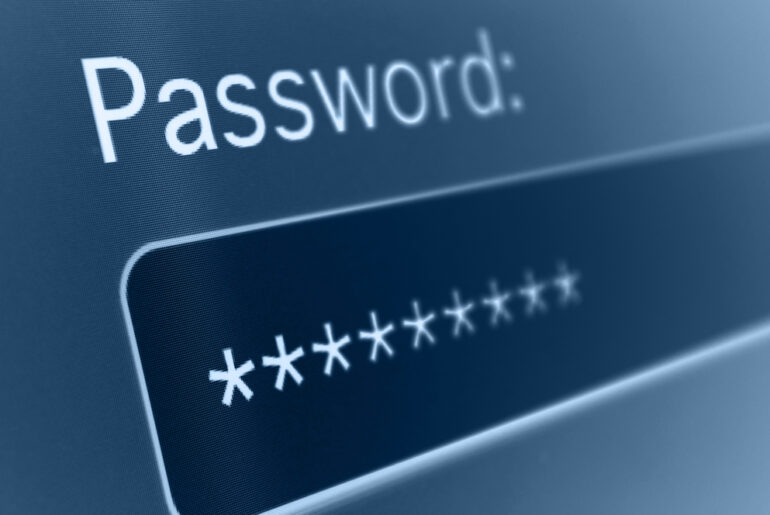You may have heard the term “encryption” used when referring to protecting sensitive data and private information. You may have even asked yourself, “how does encryption work?” If you’re looking to learn more about encryption and how it can benefit your online security, we can help. Encrypting data is easier than it seems, especially with a robust VPN on your side. Take a look at our guide to understanding encryption and protecting your online privacy.
What is Encryption and How Does it Work?
The encryption process is relatively simple, from an outside perspective. Encryption takes your information, like a text message, and scrambles it until it becomes “ciphertext.” Once the data reaches its intended destination, it becomes legible to the intended recipient through a process called “decryption.” This keeps the data confidential and protected during transmission until the recipient uses their encryption key to unlock the information. Both the sender and the receiver have the key, which unscrambles the data once it arrives.
The encryption key in this scenario is not a physical key, but rather a pattern of algorithms. These algorithms scramble and unscramble data, making it easier for recipients to both read and protect their information. Each encryption key is unique and comes in two varieties: symmetric encryption and asymmetric encryption. We’ll discuss these more in detail below.
Types of Encryption and Keys
There are two distinct types of encryption: symmetric and asymmetric. Although they carry out similar operations, these two varieties of encryption function in a vastly different way.
- Asymmetric encryption: This type of encryption is also known as “public-key encryption.” Two distinct keys are used for encryption and decryption. One key is a public key that is shared between users and encrypts the data. The other is a private key that is not shared with anyone else and is used to decrypt received data.
- Symmetric encryption: Instead of using two keys, symmetric encryption uses a password that both encrypts and decrypts the data.
Though they provide similar levels of security and functionality, understanding the difference between asymmetric and symmetric encryption is important. Knowing these key terms can help make it easier for you to understand the intricacies of encryption, especially concerning algorithms. There are a few popular types of encryption algorithms, including:
- AES
- RSA
- FPE
- ECC
- SSL/TLS
- Blowfish
- Two Fish
- Triple DES
The type of encryption you use depends on the information you’re looking to encrypt and what you need to do. No matter what encryption type you choose, it’s important to know that you have options when protecting your private information.
Benefits of Encryption
The process of encryption may seem complex, but it’s an easy way to ensure that your data stays safe. No matter what files or networks you hope to encrypt, you can receive a variety of benefits from encryption. If you’re transferring sensitive or personal data, using encryption is a great first step to securing your information. But what are the main benefits of encryption?
- Encryption is inexpensive: When compared to other methods, securing your data with encryption is a great option for obtaining protection and saving money. Most modern software has basic encryption algorithms, including Apple iOS devices and even some browser extensions. Using a VPN is another great way to encrypt your data without exorbitant costs.
- Encryption helps remote workers: Since 2020, many offices and businesses have asked employees to work from home. As a result, sensitive company information has made its way onto the personal computers of many work-from-home individuals. One way to protect this data and ensure it doesn’t fall in the wrong hands is with encryption.
- Encryption boosts data integrity: Data is constantly in flux and changing as we use it, which is why encryption is important. Although encryption cannot necessarily guarantee safe travel for all data, the use of digital signatures can help maintain data integrity. This will stop cybercriminals from intercepting communications and tampering with the data.
Now that you know the benefits of encryption, it’s time to determine whether or not you need to use it. Depending on the data you’re hoping to protect, digital encryption can give you much more robust security. This is especially true of a VPN, which encrypts your traffic and makes it easier to protect your activity.

Do I Need Encryption?
Even if you aren’t keeping sensitive information on your computer, such as banking statements or private work files, you should still encrypt your data. When you encrypt your personal info and keep it in a secure location, it becomes more challenging to access. This means that any prying eyes who might be spying on your activity are unable to access it because of your encryption key. You can get the same benefit by using a reliable VPN, which funnels your data through secure encryption tunnels. No matter how you do it, encrypting your data is a great idea.
Access Secure Encryption Protocols with PrivadoVPN
Now that you know the importance of encryption, you understand how vital it is to encrypt your online activity. By using a VPN with secure encryption protocols, you can keep your data safe and secure. Get PrivadoVPN today and experience a true zero-log VPN with unlimited data, servers in 44 countries, limitless connections, and more. Download the app today on all of your favorite devices to ensure that you’re always protected.
Get PrivadoVPN Today
Sign up for unlimited VPN data, access to SOCKS5 proxy, and easy-to-use multi-device protection. Get started with PrivadoVPN now.




